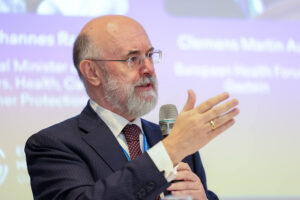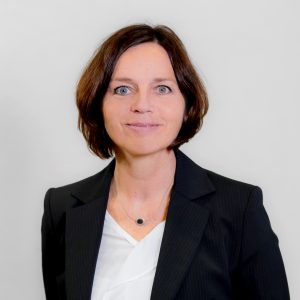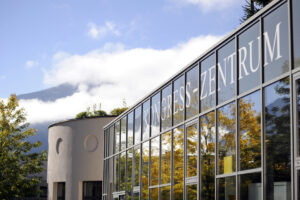In times of shrinking budgets, the funds available for health and social affairs are under threat. The approach taken by Europe’s health experts to confront this is one of the central issues being discussed at the EHFG 2025. Its main theme is: “Rethinking solidarity in health: healing Europe’s fractured social contract”.
Text: Dietmar Schobel
About 2.5 years ago, in May 2023, the World Health Organization (WHO) declared that the international health emergency resulting from the COVID-19 pandemic had come to an end. At the height of the crisis, decision-makers spared no expense in protecting our collective health, adopting the strategy of “cost what it may”. But since then, geopolitical tensions have intensified due to developments such as Russia’s war on Ukraine, an impending economic conflict with China and an isolationist US President fuelled by a web of disinformation. Additionally, societal divides have deepened and the trust of citizens in the state, politics and science has declined. And in the European Union, priorities have shifted: competitiveness and rearmament now top the political agenda.
With this in mind, “Rethinking solidarity in health: healing Europe’s fractured social contract” was chosen as the main theme for the 28th European Health Forum Gastein (EHFG). The solidarity-based and democratic model of the European welfare state is being jeopardised by populist rhetoric and authoritarian tendencies. That is especially true of the social contract, which can be seen as the glue that holds our society together. It is a shared understanding of the rights and obligations of citizens towards the state and vice versa. In concrete terms, this means that we as citizens pay fees and taxes, and we expect protection from the state as a service “in return”. One important factor here is legal security, both internally and externally. But in particular, it involves social security in case of illness and in old age. This requires an efficient, universally accessible healthcare system that people can rely on.
Investment in health helps trust to grow

As budgets shrink and competition for funds among different sectors increases, health stakeholders need to communicate clearly in public dialogue and express their conviction that health expenditure is an investment, not a burden, says the President of the European Health Forum Gastein, Clemens Martin Auer: “We must make it absolutely plain that the trust that citizens have in state institutions and in democracy will suffer even more if current financial problems result in cuts to future health spending – as we have seen happen to investments in environmental protection.” In contrast, strengthening the area of healthcare can be key to regaining, maintaining and increasing this trust. Moreover, Europe needs healthy citizens in order to defend itself and remain competitive. “Social security and a flourishing economy are mutually dependent – in the same way as you need two active partners to pedal a tandem if you want to make good progress,” the EHFG President explains.
Social security and a flourishing economy are mutually dependent.
EHFG PRESIDENT CLEMENS MARTIN AUER
Alongside the central significance of solidarity-based health systems for society and the new era in geopolitics, other topics at the EHFG 2025 include digitalisation and specifically artificial intelligence tools. “AI tools are expected to enable better diagnostics and therapy in the health sector, but the labour market and society as a whole will also undergo fundamental change due to these tools,” emphasises Clemens Martin Auer. Given that our working lives are becoming progressively digital, our tax systems and social security contributions need to undergo restructuring to safeguard the financing of solidary health and welfare systems. “In practice, one solution could be to impose a tax on the use of technologies, for example. However, at present such options are not on the agenda in the political powerhouses. But at the EHFG 2025 they are expected to be one of the central topics,” says the EHFG President.
Three plenaries and 25 sessions

Discussions in the Gastein valley are always animated and well-informed, and this year will be no different as representatives from all four pillars of society – the public and private sectors, civil society and science & academia – will again be attending in person and online. Besides the three plenaries, the 2025 schedule includes 25 sessions on topics such as “Hospitals of the future”, “Climate change and health inequalities” and “Beating hearts: a vision for cardiovascular health and equity”, among many others. The Austrian National Public Health Institute is inviting participants to attend a “Prevent Non-Communicable Diseases Walk”: this session is designed to combine theoretical input with practical experience on a tour of the event location Bad Hofgastein, which integrates some healthy exercise.
We want to be a platform where people listen to each other, interact and work together.
EHFG SECRETARY GENERAL DORLI KAHR-GOTTLIEB
Formats that encourage involvement, for instance the “fishbowl” discussions, will again have priority at Europe’s most important health policy conference. The same is true of the networking breaks which offer an ideal opportunity for establishing or renewing professional contacts. One new addition to the schedule is the session on the first day of the conference where EHFG newcomers are invited to network with experienced EHFG participants. There are many long-standing attendees, as the event is now taking place for the 28th time. “Besides the main four-day EHFG in the autumn, where up to 600 participants attend in person, we consider it important to continue our commitment to health policy topics throughout the entire year,” explains EHFG Secretary General Dorli Kahr-Gottlieb.
For gender equity and a European Health Union

As one of the additional projects, the EHFG coordinates the “Austrian Chapter of Women in Global Health”, which was founded in 2023 and advocates for gender equity in the health sector. The European Health Union initiative (EHUi) was initiated at the EHFG 2020 by the Lithuanian surgeon, civil rights campaigner, former EU Commissioner for Health and Food Safety and MEP Vytenis Andriukaitis and 15 colleagues associated with the EHFG, who drew up the “Manifesto for a European Health Union”. Further activities involving the EHFG team over the coming months include two EHUi events in the European Parliament and national policymaker roundtables in two Member States. The Health Union Fellowship is a new EU training programme in which a health expert and a supporting mentor were selected from each EU Member State. Organised by the EU Directorate-General for Health & Food Safety, this flagship initiative has brought together a distinguished group of experts who share knowledge, learn from each other and gain a deeper understanding of the important health issues at European level, for example digital health initiatives and also health promotion and disease prevention. The first cohort will meet at the EHFG 2025 for the closing module of their training programme.
What do the EHFG President and the EHFG Secretary General expect from this year’s event? “In an environment far removed from the hustle and bustle of everyday working life, each year the European Health Forum Gastein provides a setting for intense discussions, including difficult or challenging issues. Ideally, the results are then integrated into strategies for a healthy, social future in Europe and put into practice,” says Clemens Martin Auer. “In addition, I should like to see us making a contribution towards reducing the severe polarisation in society,” Dorli Kahr-Gottlieb adds: “We want to be a platform where people listen to each other, interact and work together to find new solutions to problems relating to health and social policy at European, national and regional levels.”
ABOUT EUROPEAN HEALTH FORUM GASTEIN
The European Health Forum Gastein (EHFG) was founded in 1998 as a European health policy conference. It aims to provide a platform for all stakeholders from the fields of public health and beyond. Over the past 27 years, the EHFG has established itself as an indispensable institution in the scope of European health policy. With its annual conference and other events and projects, it has made a decisive contribution to the development of guidelines and above all the cross-border exchange of experience, information and cooperation. Leading European experts traditionally participate in the annual conference held in the Gastein Valley in the Austrian Alps in late September.
